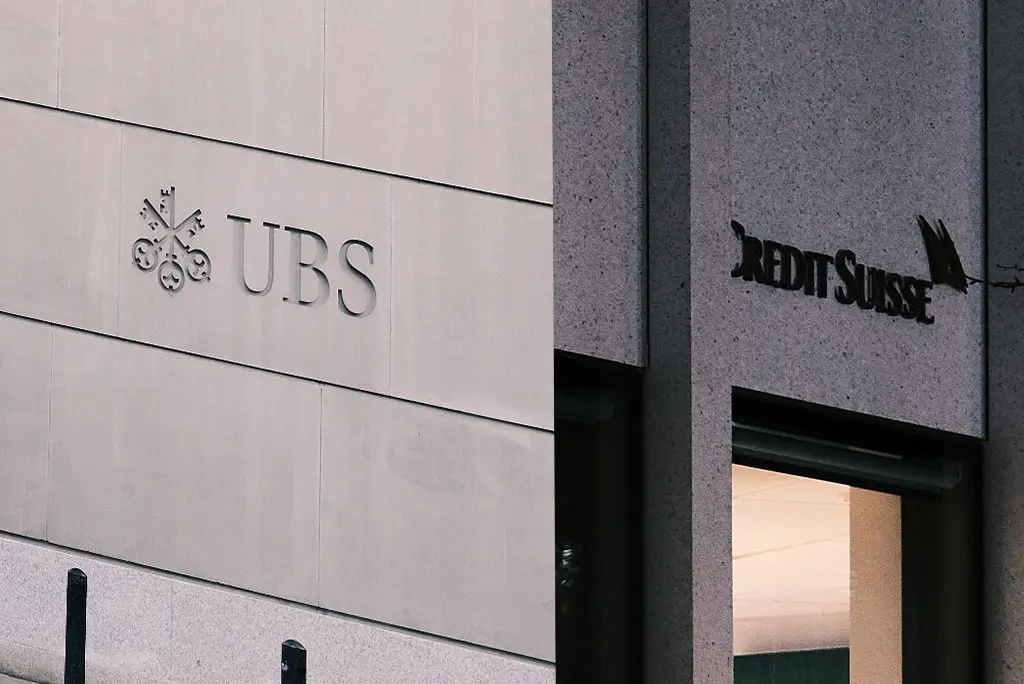On Monday, UBS, a Swiss bank, announced that it has officially completed the acquisition of its rival, Credit Suisse. Sergio Ermotti, the newly-returned CEO of UBS Group, expressed his enthusiasm about the merger, stating,
“Instead of competing, we’ll now unite as we embark on the next chapter of our joint journey.”
UBS has reached an agreement to acquire Credit Suisse. It acquired its struggling rival for 3 billion Swiss francs ($3.2 billion). The sum is marginally less than the market value of the bank. This deal is significant, as it involved Swiss regulators actively participating in preventing a potential contagion that could impact the global banking system. As reported by UBS, the merged entity will have approximately $5 trillion of invested assets.
Credit Suisse and its American Depositary Shares will be delisted from the SIX Swiss Exchange and New York Stock Exchange after the acquisition. Shareholders will receive one UBS share for every 22.48 Credit Suisse shares held. The combined UBS will have a balance sheet of $1.6 trillion.
UBS Group will initially manage UBS and Credit Suisse as separate banks, while the future of assets such as Credit Suisse’s retail bank remains uncertain. UBS anticipates that the operating losses and restructuring charges of Credit Suisse will be offset as it reduces risk-weighted assets. The company forecasts a common equity tier 1 capital ratio of around 14% for the remainder of the year.
Employment cuts
According to UBS’s CEO, Sergio Ermotti, approximately 10% of Credit Suisse’s staff had already left the company in the months leading up to the takeover by UBS. Ermotti mentioned this in an interview with a Swiss broadcaster.
Both UBS and Credit Suisse collectively employ 120,000 individuals globally. However, UBS has already indicated its intention to cut jobs as part of cost-reduction efforts and leverage the merger’s synergies.
In addition to the takeover, UBS also announced a series of management changes following the completion of the acquisition.
After a weekend of intense negotiations, the Swiss government and banking regulator reached a deal. This was after it became evident that a $54 billion loan from the Swiss central bank to Credit Suisse failed to halt the rapid decline in the bank’s share price.
What Did the Swiss President say
Swiss President Alain Berset described UBS’s takeover of Credit Suisse as the best solution given the current situation. The Swiss federal government, the Swiss Financial Market Supervisory Authority (FINMA), and the Swiss National Bank agreed to support the deal, making the takeover possible.
An £8 billion insurance scheme was established to protect UBS from potential losses. Swiss Finance Minister Karin Keller-Sutter compared it to a backstop. The insurance policy would only come into effect if specific losses occurred.
Private investors who provided Credit Suisse with $16 billion in credit were expected to face losses as part of the deal.
The Downfall and Acquisition of Credit Suisse
Despite the price tag of the takeover, which is significantly below Credit Suisse’s stock market value, the bank’s market capitalization had already plummeted to just $8.6 billion (£7 billion), down 86% since February 2021. This decline resulted from scandals, compliance issues, and poor financial decisions.
Credit Suisse faced a significant setback in 2014 when it pleaded guilty to facilitating tax evasion by its US clients. That resulted in a $2.6 billion fine imposed by the US government and New York financial regulators. In 2020, the bank experienced two corporate espionage scandals involving senior employees. It led to the resignation of then-CEO Tidjane Thiam. The bank also incurred a $5.5 billion loss due to the collapse of US hedge fund Archegos Capital the following year.
Adding to the negative publicity, fraudsters, criminals, and corrupt politicians had deposited £80 billion with Credit Suisse.
Reaction from the Global Banks
The announcement of UBS acquiring Credit Suisse was met with a positive response from the Bank of England. They assured the safety and soundness of the UK banking system. However, to address global concerns, several major central banks, including the Federal Reserve, European Central Bank, Bank of Canada, Bank of Japan, and Swiss National Bank, took coordinated measures to enhance liquidity provision.

